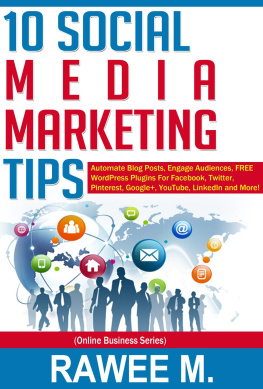David L. Sloss - Tyrants on Twitter: Protecting Democracies from Information Warfare
Here you can read online David L. Sloss - Tyrants on Twitter: Protecting Democracies from Information Warfare full text of the book (entire story) in english for free. Download pdf and epub, get meaning, cover and reviews about this ebook. City: Stanford, year: 2022, publisher: Stanford University Press, genre: Science / Politics. Description of the work, (preface) as well as reviews are available. Best literature library LitArk.com created for fans of good reading and offers a wide selection of genres:
Romance novel
Science fiction
Adventure
Detective
Science
History
Home and family
Prose
Art
Politics
Computer
Non-fiction
Religion
Business
Children
Humor
Choose a favorite category and find really read worthwhile books. Enjoy immersion in the world of imagination, feel the emotions of the characters or learn something new for yourself, make an fascinating discovery.

- Book:Tyrants on Twitter: Protecting Democracies from Information Warfare
- Author:
- Publisher:Stanford University Press
- Genre:
- Year:2022
- City:Stanford
- Rating:4 / 5
- Favourites:Add to favourites
- Your mark:
Tyrants on Twitter: Protecting Democracies from Information Warfare: summary, description and annotation
We offer to read an annotation, description, summary or preface (depends on what the author of the book "Tyrants on Twitter: Protecting Democracies from Information Warfare" wrote himself). If you haven't found the necessary information about the book — write in the comments, we will try to find it.
A look inside the weaponization of social media, and an innovative proposal for protecting Western democracies from information warfare.
When Facebook, Twitter, YouTube, and Instagram were first introduced to the public, their mission was simple: they were designed to help people become more connected to each other. Social media became a thriving digital space by giving its users the freedom to share whatever they wanted with their friends and followers. Unfortunately, these same digital tools are also easy to manipulate. As exemplified by Russias interference in the 2016 U.S. presidential election, authoritarian states can exploit social media to interfere with democratic governance in open societies.
Tyrants on Twitter is the first detailed analysis of how Chinese and Russian agents weaponize Facebook, Instagram, Twitter, and YouTube to subvert the liberal international order. In addition to examining the 2016 U.S. election, David L. Sloss explores Russias use of foreign influence operations to threaten democracies in Europe, as well as Chinas use of social media and other digital tools to meddle in Western democracies and buttress autocratic rulers around the world.
Sloss calls for cooperation among democratic governments to create a new transnational system for regulating social media to protect Western democracies from information warfare. Drawing on his professional experience as an arms control negotiator, he outlines a novel system of transnational governance that Western democracies can enforce by harmonizing their domestic regulations. And drawing on his academic expertise in constitutional law, he explains why that systemif implemented by legislation in the United Stateswould be constitutionally defensible, despite likely First Amendment objections. With its critical examination of information warfare and its proposal for practical legislative solutions to fight back, this book is essential reading in a time when disinformation campaigns threaten to undermine democracy.
David L. Sloss: author's other books
Who wrote Tyrants on Twitter: Protecting Democracies from Information Warfare? Find out the surname, the name of the author of the book and a list of all author's works by series.







